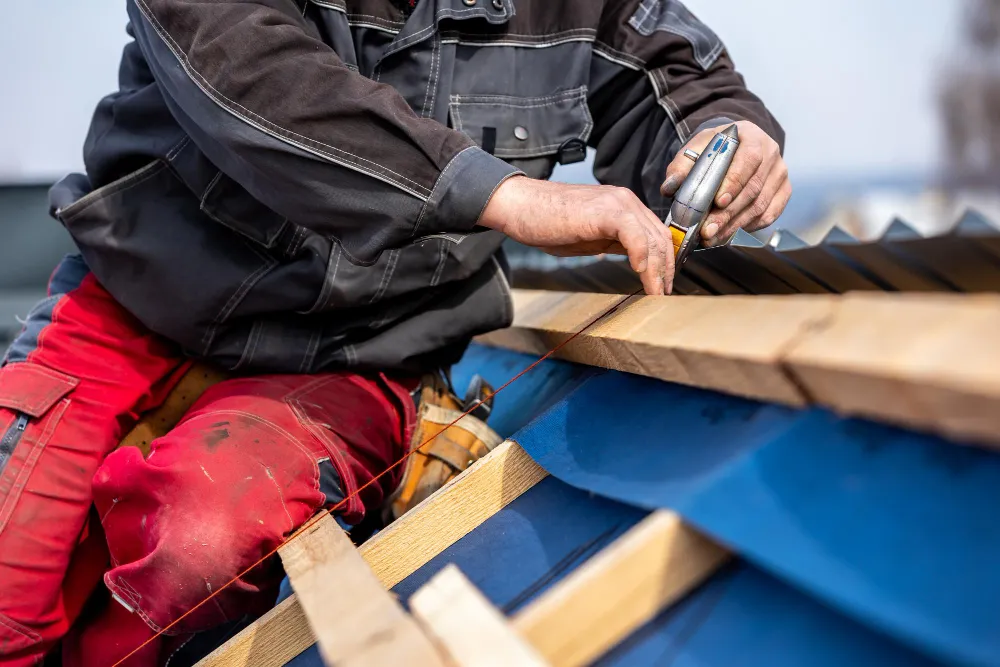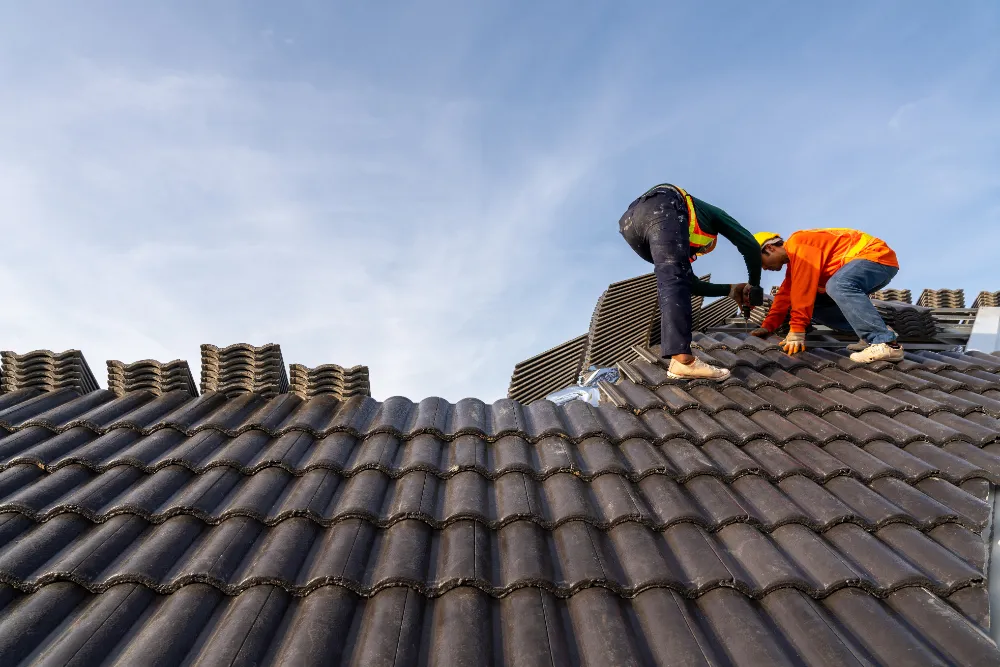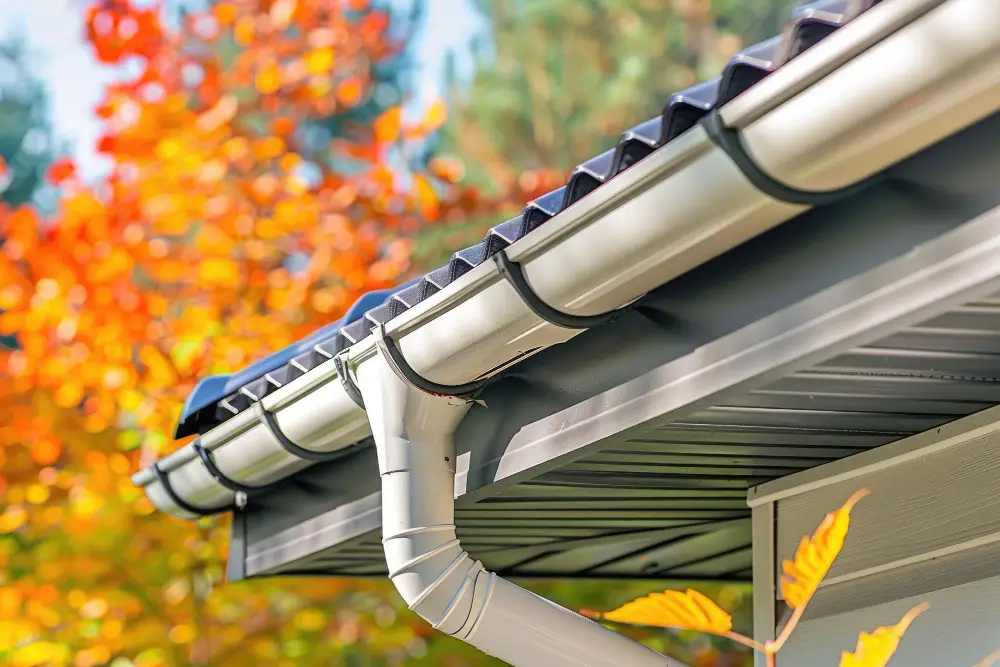How Dublin’s Weather Affects Your Roof
The weather in Dublin, while relatively mild compared to some parts of the world, can take a significant toll on your roof. With a temperate maritime climate characterised by frequent rainfall, strong winds, and varying temperatures, roofs in Dublin face unique challenges. Understanding how Dublin’s weather can affect your roof is crucial for protecting your home and ensuring that your roof remains in good condition for years to come. In this article, we will explore the different ways Dublin’s weather impacts your roof and provide tips on how to mitigate these effects.
Rainfall and Water Damage
Dublin is known for its consistent rainfall, with an average of over 120 rainy days per year. While the city’s lush greenery benefits from the rain, your roof may not fare as well. Persistent rain can cause several issues for roofs, particularly those that are older or poorly maintained.
Water pooling, a common issue, occurs when rainwater doesn’t properly drain off the roof, leading to leaks or even structural damage. This is especially problematic for flat roofs, which are more prone to water accumulation. Over time, this can lead to roof rot, particularly in wooden structures, and may even weaken the roof’s overall integrity.
Gutters play a critical role in draining rainwater away from your roof and home. Blocked or damaged gutters can exacerbate water-related issues, allowing water to seep into the roof and walls, causing dampness and mould. Ensuring that your gutters are regularly cleared and functioning properly can prevent significant water damage to your home.
What to watch for:
- Water stains on your ceiling or walls
- Dampness or mould in the attic
- Sagging gutters or areas where water pools
Wind and Storm Damage
Dublin experiences strong winds throughout the year, particularly during winter storms. While the city isn’t subjected to hurricanes, the Atlantic winds can still cause considerable damage to roofs. High winds can loosen or even tear off roofing materials, such as shingles, tiles, or slates, leaving your roof vulnerable to leaks.
Debris carried by the wind, such as branches or other objects, can strike your roof, causing physical damage. Additionally, heavy winds can exacerbate existing roof weaknesses, such as loose tiles or poorly secured flashing. If these issues aren’t addressed promptly, water may seep in, causing further problems.
Preventive measures:
- Regularly inspect your roof for loose or missing tiles or shingles
- Trim nearby trees to reduce the risk of debris impact
- Ensure that flashing around chimneys, vents, and skylights is secure
Cold Temperatures and Frost
While Dublin doesn’t experience harsh winters compared to some regions, the colder months still pose a threat to your roof. Frost and the freeze-thaw cycle can be particularly damaging to certain roofing materials, such as asphalt shingles or metal roofs. When temperatures drop overnight, moisture on your roof freezes, expanding slightly. During the day, when temperatures rise, the ice melts, and the water contracts. This constant expansion and contraction can cause cracks to form in roofing materials, leading to leaks and, eventually, more extensive damage.
Snow, although not a common occurrence in Dublin, can also create problems. Even light snowfalls can accumulate and cause extra weight on your roof, potentially leading to structural strain.
Recommendations:
- Insulate your roof properly with professional roofers to prevent ice dams from forming
- Use weather-resistant roofing materials that can withstand the freeze-thaw cycle
- Inspect for cracks or damage after the winter months
Humidity and Moss Growth
Dublin’s climate is also characterised by high humidity, which can encourage the growth of moss, algae, and mould on roofs. While moss might seem harmless at first, it can cause serious damage over time. Moss traps moisture against the surface of your roof, which can degrade shingles, tiles, or slates. This moisture retention can eventually lead to leaks and weaken the structure of your roof.
In addition, moss and algae growth can become unsightly, making your roof look aged and unkempt. Mould growth, particularly in damp environments, can lead to health issues for those living in the home.
How to combat moss and algae:
- Regularly clean your roof to remove moss, algae, and other organic matter
- Use a moss-resistant coating or anti-fungal treatment to prevent regrowth
- Ensure proper ventilation in your attic to reduce humidity levels
UV Exposure and Sun Damage
Though Dublin is better known for its rain than its sunshine, UV exposure can still cause damage to your roof over time. Prolonged exposure to sunlight can degrade certain roofing materials, particularly asphalt shingles, causing them to become brittle, crack, or curl. While the sun might not seem like a significant threat, even a few sunny days can have a cumulative effect on the durability of your roof.
This UV damage weakens the roof’s ability to protect your home, potentially allowing water to seep through during rainy periods. It’s essential to choose materials that are resistant to UV damage, especially if your roof is exposed to prolonged sunlight during the summer months.
Considerations:
- Use UV-resistant roofing materials, such as metal or slate
- Apply a protective roof coating to enhance durability
- Ensure proper insulation to reduce heat absorption from sunlight
The Importance of Regular Roof Maintenance
Given the array of weather conditions Dublin experiences, regular roof maintenance is essential to keeping your roof in optimal condition. Seasonal changes can cause a variety of issues, from water damage in the autumn to frost-related problems in winter. By conducting routine inspections and roof maintenance, you can identify potential problems early and address them before they escalate into more costly repairs.
Key maintenance tasks:
- Inspect your roof at least twice a year, particularly after storms or heavy rain
- Clean gutters and downpipes to ensure proper drainage
- Check for moss or algae growth and treat it promptly
- Address any loose or damaged roofing materials immediately
- Consider a professional roof inspection for a thorough assessment
Conclusion
Dublin’s weather, from consistent rainfall to strong winds and occasional frost, poses a variety of challenges to your roof. Being aware of these potential problems and taking proactive measures to maintain and protect your roof can help extend its lifespan and prevent costly roof repairs in the future. Whether you’re dealing with water damage, wind impact, or moss growth, regular roof maintenance is your first line of defence against the elements. Consider seeking professional roofing advice or scheduling regular inspections to ensure your roof remains in top condition, no matter what the Dublin weather throws at it.





